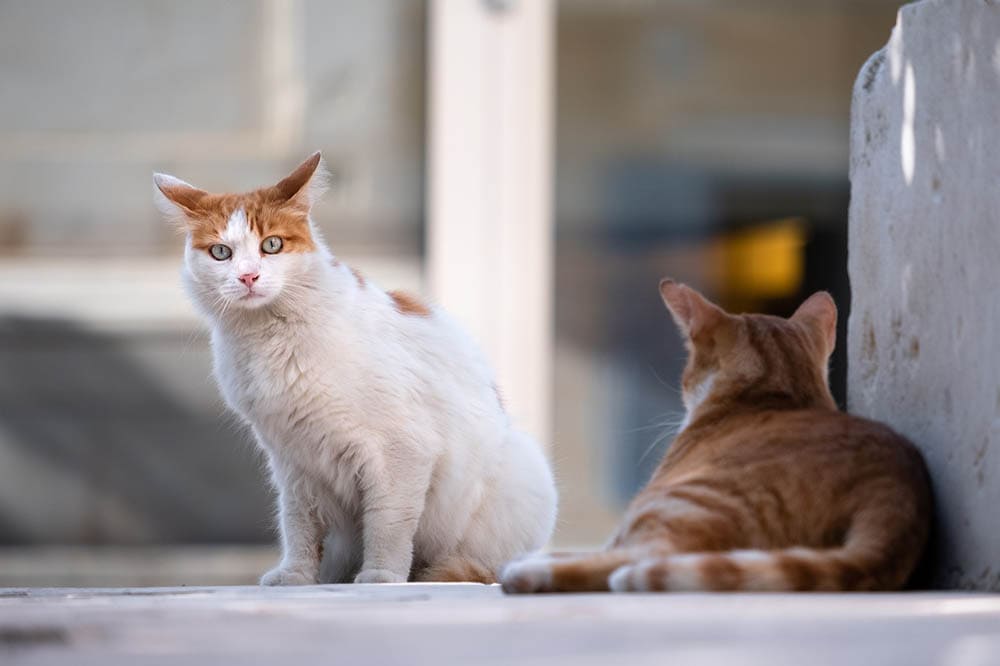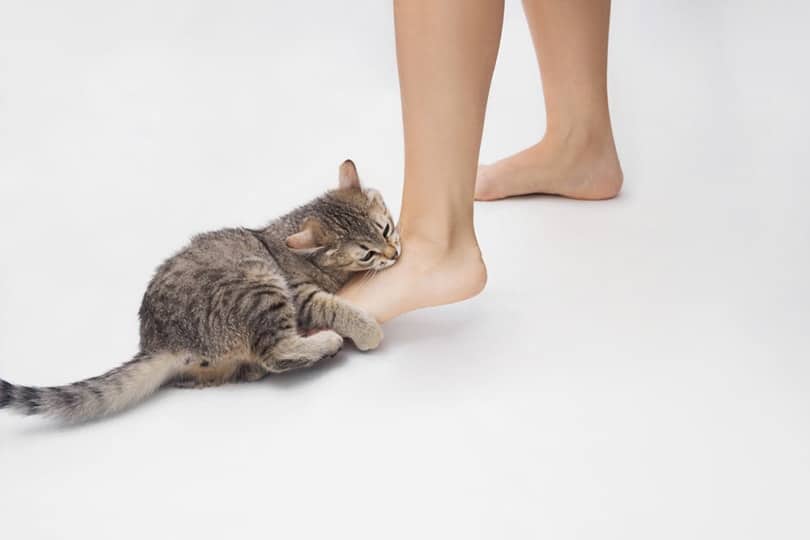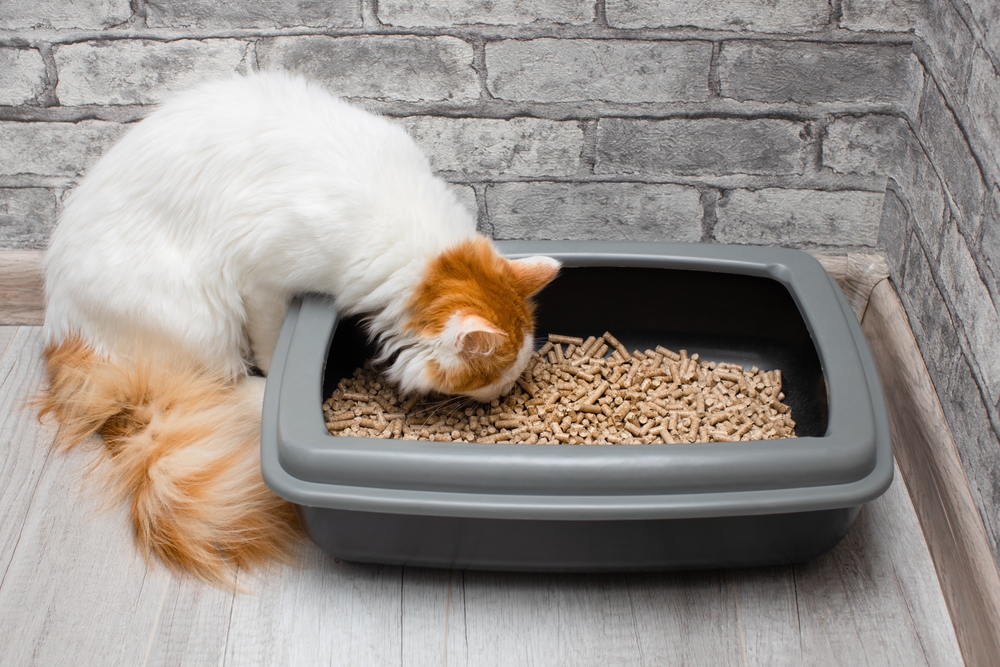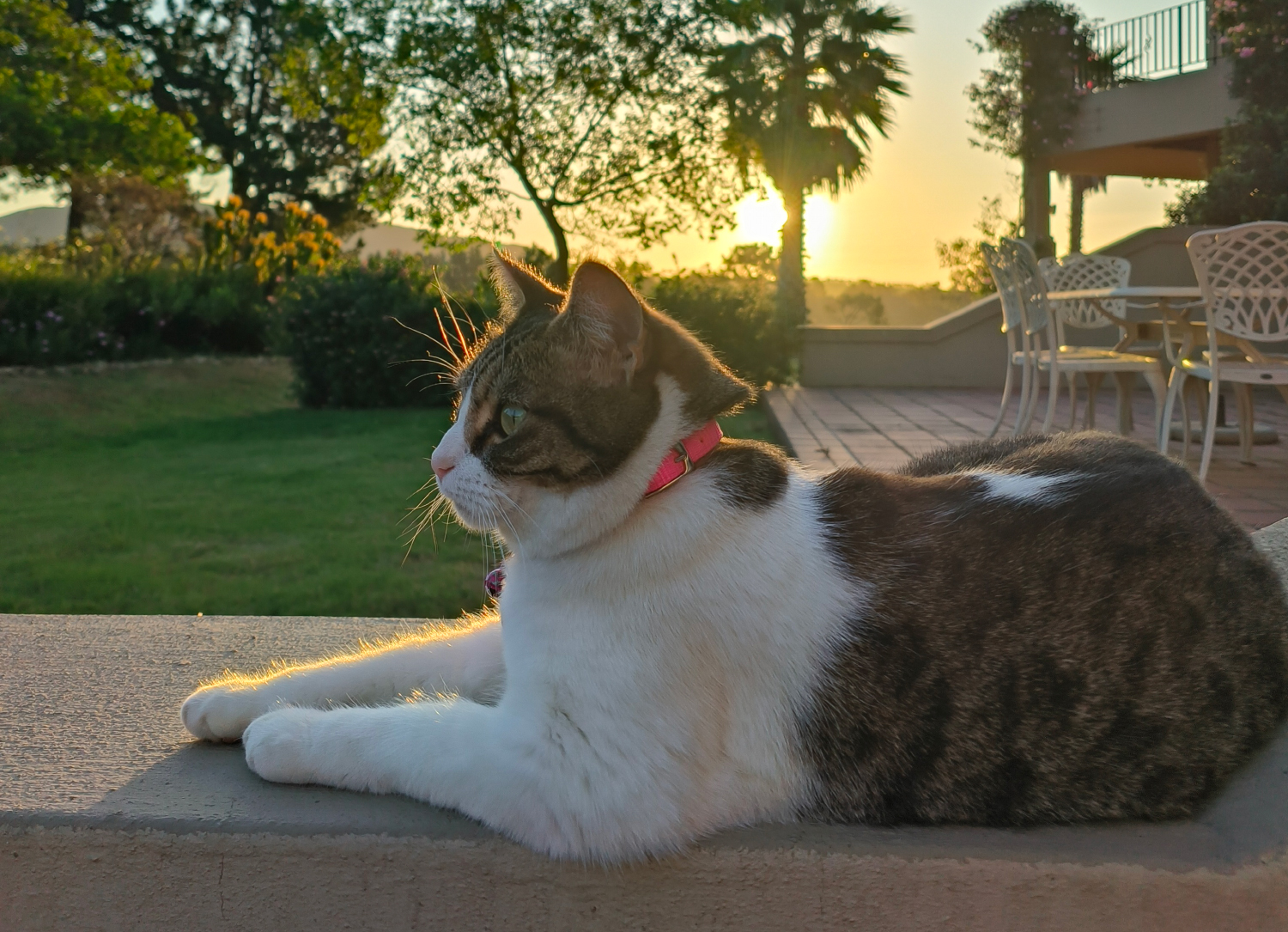Click to Skip Ahead
Feral cats are outdoor cats that have had minimal or no contact with humans and can survive independently or with minimal human intervention. They are typically wary or fearful of people, often scavenging or hunting for food, living in colonies, and avoiding human interaction. You might think they are completely different from pet cats, but despite their wilder nature, feral cats share many similarities with domesticated cats. They engage in play with other cats in their social group, but they wouldn’t be expected to play with humans due to their lack of socialization.

Do Feral Cats Play?
Yes, feral cats do play. Playing is an instinctual behavior in cats. As kittens, they often engage in activities such as chasing one another, batting at objects, and wrestling. Kittens instinctively engage in this behavior because it helps them practice the skills necessary to hunt and to fight competitors as adults. Therefore, play is absolutely normal and expected in feral cats.
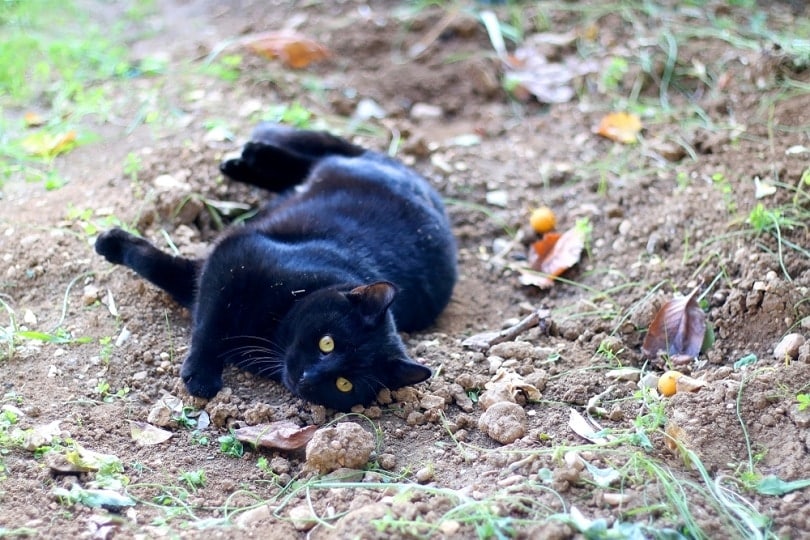
Why Do Feral Cats Play?
Play is linked to cat wellbeing. The reasons why feral cats play is for juvenile development and maintenance of neurological, mental, and emotional skills. Playing is more typical of younger cats, while adult cats might be busier protecting their territory, hunting, and mating if they haven’t been neutered.
How Do Feral Cats Play?
Feral kittens play mimicking hunting behaviors. They will typically play with each other, feathers, or injured prey their mothers bring back to their den. As kittens, they may also play with random objects they find around their dens.
Do Feral Cats Play With Humans?
No, feral cats are typically too scared to interact with humans. Feral cats will not generally play with humans and should never be handled by them.
Do Feral Cats Play With Each Other?
Yes, feral kittens do play with one another. However, feral adults might not play so frequently. Some of the skills used during playtime as kittens are used for hunting and fighting as adults.
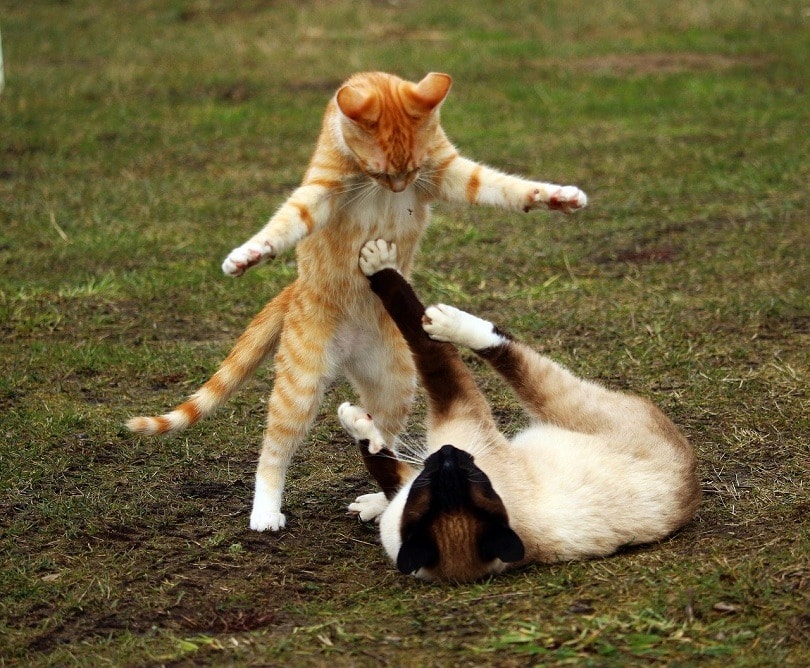
What Toys Can I Safely Give a Feral Cat?
Interacting with feral cats is not recommended; therefore, you shouldn’t offer them toys. Interacting with a stray cat or abandoned kittens you wish to adopt is fine. Such animals can be offered any cat toy as well as food and shelter.

Is It Safe to Interact With Feral Cats?
Please be mindful that in some jurisdictions, feeding feral animals is strongly discouraged. For example, the American Veterinary Medical Association (AVMA) doesn’t recommend feeding feral cats for public health reasons. Feeding feral cats without any intention of adopting, neutering, or rescuing them is considered counterproductive, as the animals will continue to reproduce in the area while still facing the many struggles of being feral. Additionally, don’t overlook the risk posed to local wildlife, mainly birds and small mammals, by the presence of a hunter such as a cat.
Feeding feral cats with the intention of rescuing them is considered acceptable in most instances. However, feeding feral cats with no intention of providing them with a better future is considered counterproductive to animal welfare.
It is not recommended to interact directly with feral cats, as they are unsocialized animals and might behave defensively if approached by a human. You should not try to touch them or handle them, and never try to pick them up.
If you want to help feral cats, consider the following tips.
- Never try to pick up a feral cat – they may scratch or bite if they feel threatened.
- Always keep your distance from feral cats and give them space to move around freely.
- If you’re providing food and water, do so from a distance. This way, cats won’t be tempted to enter people’s homes or yards.
- Do not attempt to pet or handle feral cats, as this could lead to the spread of diseases and parasites.
- Contact local animal control authorities if you are concerned about a feral cat population in your area.
- Protect yourself against potential infections by washing your hands or wearing gloves when handling food bowls or toy items for feral cats.
- Make sure that any outdoor cats in your area are spayed or neutered to help reduce the feral cat population.
- If you want to provide shelter for feral cats, make sure it is secure and away from public areas such as parks and playgrounds.
If you see a feral cat in distress, contact your local animal control or veterinary clinic for help and guidance. Do not attempt to handle the feral cat yourself, as it may cause additional distress or injury. It is important to take precautions when interacting with feral cats to ensure both their safety and yours.
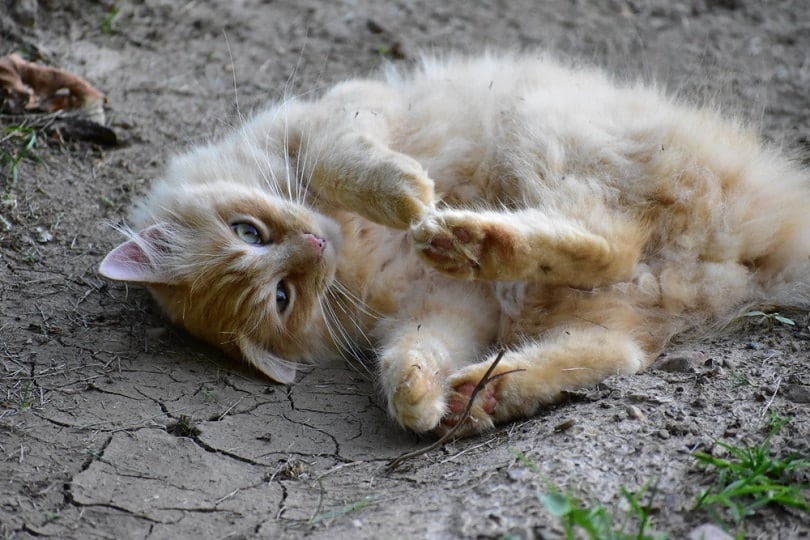
How Can I Help Feral Cats?
The AVMA acknowledges that managing free-roaming cat colonies is a controversial topic:
“However, properly managed programs can improve quality of life for these cats through better nutrition, vaccination to prevent disease, spaying and neutering to reduce unwanted litters, euthanasia of sick and debilitated cats, and adoption of healthy kittens.”
If you want to help a feral cat colony, it’s important to consider more than just providing food. Since cats organize themselves based on food availability, feeding them without implementing a trap-neuter-return (TNR) program will only lead to continued breeding. You can also support feral cats by providing sheltered areas for them to rest in or by volunteering with local organizations dedicated to their welfare. Finally, ensuring that your own outdoor cats are spayed or neutered is another crucial step in reducing the feral cat population.

Conclusion
Feral cats, especially kittens, can be quite playful. They enjoy chasing one another and playing with makeshift toys or other items found in their environment.
If you want to contribute to the welfare of feral cats, it’s important to approach them with realistic expectations. Providing food, shelter, and toys can be beneficial, but only if you intend to socialize and eventually adopt them. Otherwise, the most effective way to support their well-being is by participating in or supporting a trap-neuter-return (TNR) program, which helps control their population and improve their quality of life. These programs are often organized by local animal welfare groups or municipal animal control services.
Featured Image Credit: JancickaL, Pixabay

